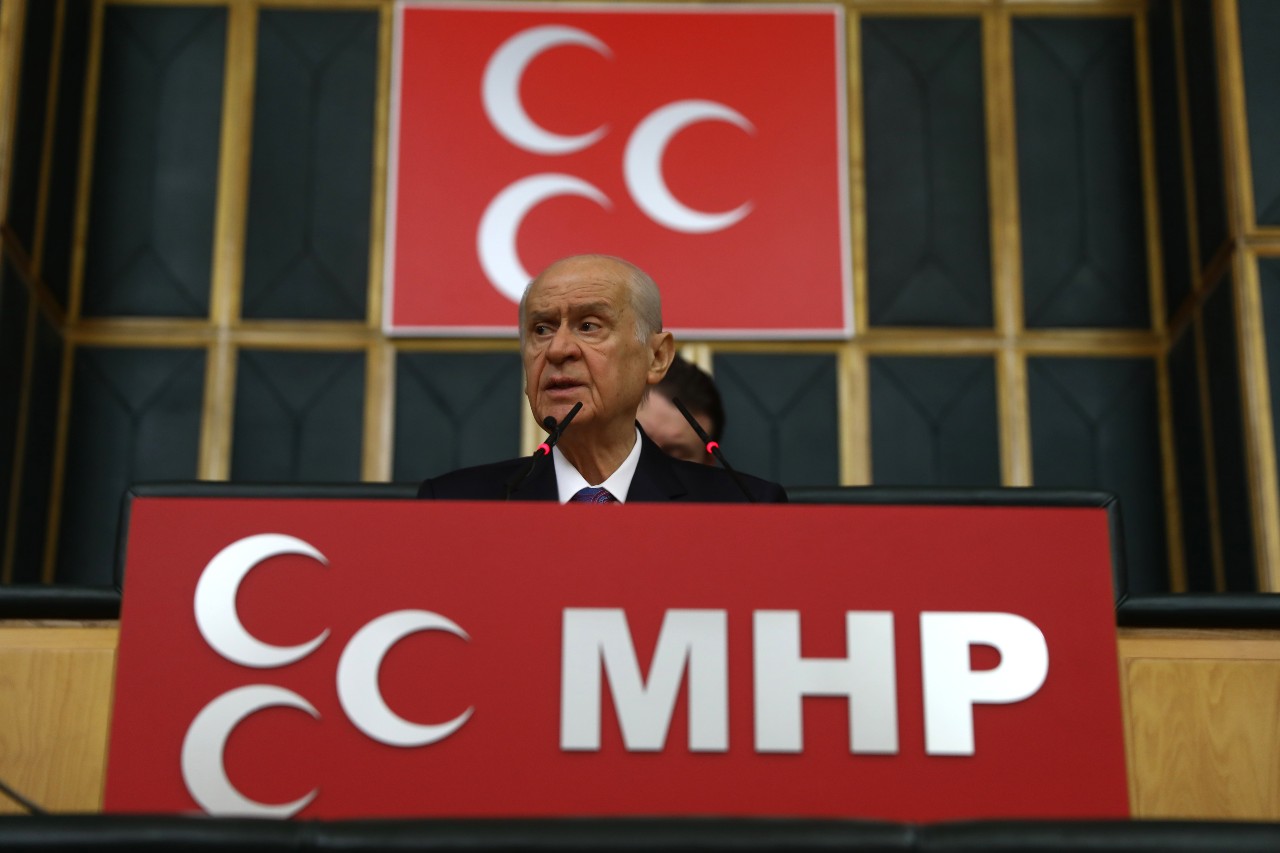The chairman of the far-right Nationalist Movement Party (MHP), a key ally of Turkish President Recep Tayyip Erdoğan, urged Turkey’s top prosecutor’s office to pursue the closure of the pro-Kurdish Peoples’ Democratic Party (HDP) in a written statement on Monday, renewing calls he made in December.
Devlet Bahçeli, head of the MHP, said the HDP should be banned for encouraging Kurds to protest what is seen by many as the Turkish government’s tacit approval of the Kobane siege in 2014 when Islamic State in Iraq and the Levant (ISIL) militants laid a prolonged siege to a Kurdish town in northern Syria.
If the prosecutor fails to comply with the request, the MHP will seek the party’s closure under the country’s Political Parties Law, Bahceli said.
Ümit Dede, deputy co-chair of the HDP, responded to Bahçeli’s remarks in a written statement, accusing the far-right leader of attempting to exert influence over the country’s judiciary.
“Bahçeli is committing a constitutional crime,” Dede said.
Bahçeli has repeatedly called for outlawing the pro-Kurdish party over the past month.
“The HDP is a terror problem, a home for separatism and a sinister weapon aimed at destroying our democratic security,” Bahçeli tweeted on Dec. 11.
Bahçeli’s demands came after Erdoğan vowed to undertake a series of legal reforms in November in the face of growing political and economic crises in Turkey, raising hopes that prominent political prisoners including former HDP leader Selahattin Demirtaş, journalist and writer Ahmet Altan and human rights activist Osman Kavala would be released.
Observers interpreted Bahçeli’s move as a bid to stop Erdoğan from seeking new alliances with the country’s Kurds, as he did before 2015 with a ceasefire agreed with the separatist Kurdistan Workers’ Party (PKK), an outlawed group that has waged an armed insurgency against Ankara for four decades.
After peace talks with the PKK collapsed in 2015, the ruling Justice and Development Party (AKP) and the MHP gradually aligned their rhetoric on a more nationalist discourse, and this alignment culminated in an electoral alliance in February 2018 to re-elect Erdoğan as president.
The MHP and the AKP accuse the HDP, the newest party of the Kurdish political movement since its predecessors were shut down due to alleged terror links, of having ties to the PKK. The HDP denies the accusations.
According to observers, the MHP still has the final say over the government’s policies towards the country’s pro-Kurdish political entities.
“As for Turkey per se, at the end of the day, the MHP is the junior partner in the ‘coalition’ and has the last word. The regime, nevertheless, is keen on keeping the conservative Kurdish vote. This is probably why we hear, here and there, conciliatory declarations addressing this group but never the Kurdish political movement,” Cengiz Aktar, a professor of political science at the University of Athens, told Alin Ozinian from Turkish Minute in December.
The HDP won an unprecedented 80 seats in a mid-2015 parliamentary election, denying Erdogan’s AKP a majority for the first time. The AKP regained its majority in a second election, and the government later cracked down on the HDP, stripping its lawmakers of their immunity from prosecution and arresting several top members, including a former leader of the party. Despite the crackdown, the party won 11.7 percent of the vote in the 2018 parliamentary elections.
HDP spokeswoman Günay Kubilay accused the MHP-AKP alliance of perpetrating a political massacre on the party, noting that 16,490 HDP members — including party leaders, parliamentarians and prominent party officials — have been arrested.


